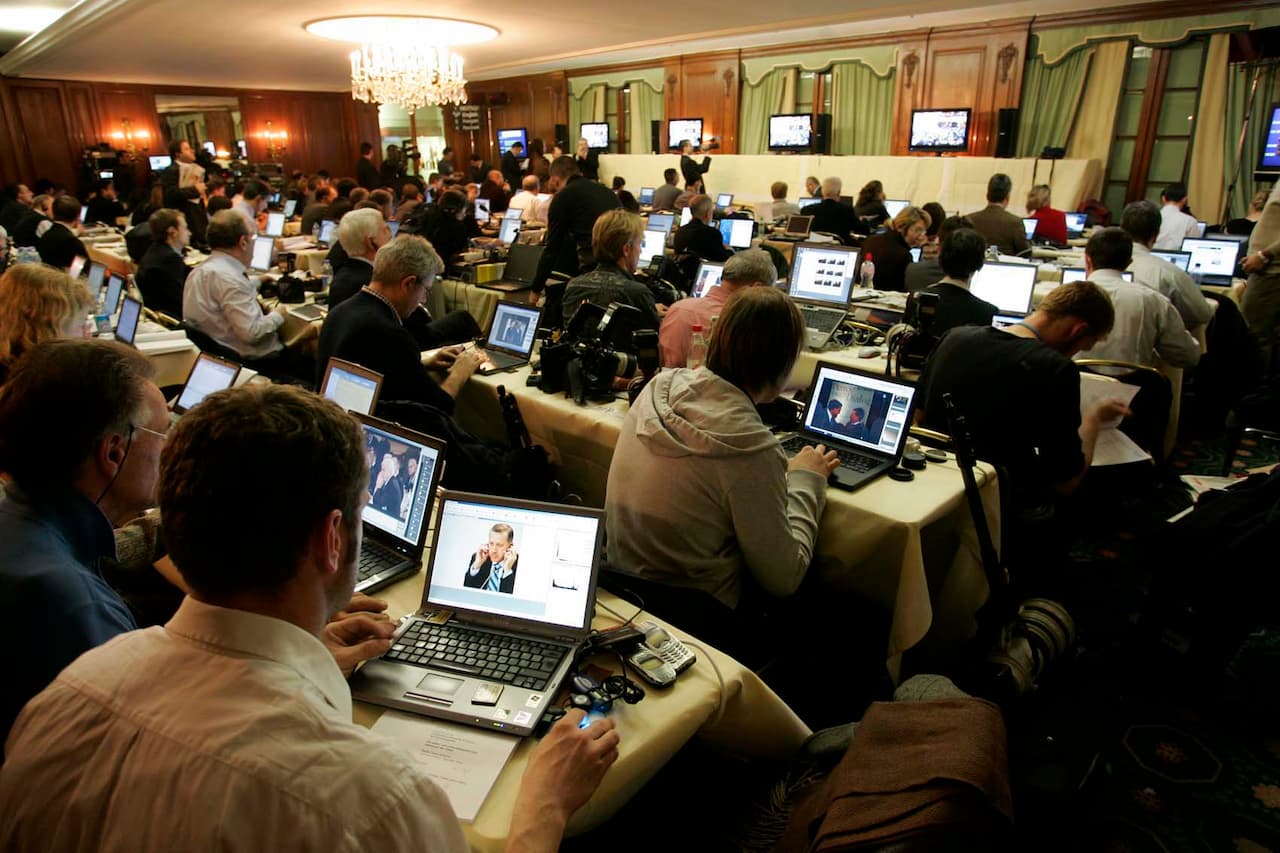Journalism is an incredibly powerful tool for creating a difference in the world. Many representatives of the profession have made a lasting impression and have had a huge impact on society by reporting the truth and exposing injustice.
Edward R. Murrow
This person is widely regarded as one of the most influential journalists of all time. His career spanned several decades and he brought a unique style to reporting that earned him widespread acclaim. He was especially renowned for his ability to bring stories to life through powerful imagery, both in radio broadcasts and television documentaries. During World War II, Murrow was a CBS correspondent and his on-the-ground gave people an intimate view of the war, bringing it into their homes. He later spearheaded the popular ‘See It Now’ program, which tackled issues such as McCarthyism and racism in America. The success of this show cemented Murrow’s place in broadcasting history and set a new standard for TV journalism. He was posthumously awarded the Presidential Medal of Freedom in 1964, recognizing his lifetime achievements and impact on the world of journalism. Edward’s legacy as an innovator and pioneer continues to this day and his work has inspired generations of the profession.
Murrow’s commitment to journalistic integrity and truth-telling has made him an icon. He often put himself in harm’s way to bring stories to life and he was unafraid of taking risks and challenging the status quo. Edward’s drive for excellence pushed other journalists to strive for ever greater accuracy, depth, and insight in their reporting. But the example continues to shape journalism today and the work has become a benchmark for modern news organizations. His commitment to telling the truth and informing the public of pressing issues was unwavering throughout his career, making him an invaluable example for today’s journalists.
Rachel Carson
A pioneering force in environmentalism and journalism… This is about Rachel Carson whose passionate writing about ecological issues brought attention to a growing problem that had been largely ignored for years and helped launch the modern environmental movement.
Carson’s best-known work, Silent Spring (1962), documented the detrimental effects of pesticides on birds, wildlife, and humans. Her groundbreaking research exposed the green damage caused by DDT and other chemicals, inspiring both public outcry and government action to reduce its use. Also, several books are written about ocean life, including The Sea Around Us (1951) and The Edge of the Sea (1955).
Rachel Carson’s report was not only influential in eco policy, but it was also an inspiration to many journalists and environmentalists who would come after her. The work showed them the power of persuasive messaging and research-based journalism as a tool for social change. This incredible woman was posthumously awarded the Presidential Medal of Freedom in 1980 for her contributions to conservation and journalism. Although she died four decades ago, Carson’s legacy lives on today in the work of environmental reporters who continue to bring attention to issues facing the planet.
Gary Webb
Gary Webb is a legendary American investigative correspondent best known for his “Dark Alliance” series of articles published by the San Jose Mercury News in August 1996. The series linked the origins of the crack cocaine trade in Los Angeles to a CIA-backed Nicaraguan Contra rebel army that had profited from drug smuggling.
The controversial series caused a national uproar, leading to federal research into the CIA’s role in the cocaine trade and inspiring numerous other journalists to follow in Webb’s footsteps. Despite its impact, his work was met with harsh criticism from many media outlets, including The New York Times and The Washington Post. Subsequent investigations found that some of his claims were inaccurate or unsubstantiated, and the accusations of bias were damaging to his career.
Undeterred by his critics, Webb continued to report on the CIA-Contra drug scandal for years. He wrote a book about the controversy, Dark Alliance: The CIA, the Contras, and the Crack Cocaine Explosion (1998), which further outlined his findings and spurred renewed debate in Congress about the agency’s involvement in drug trafficking. After leaving journalism in 2004, he went on to teach investigative reporting and wrote a memoir.
The courage and conviction of journalists like Edward R. Murrow, Rachel Carson, and Gary Webb have inspired generations of reporters to uncover the truth and shine a light on injustices across the world. Their commitment to their craft is an example for all those who seek justice through journalism.



